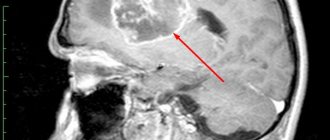Why is it important to lead a healthy lifestyle?
Many government and public organizations actively promote a healthy lifestyle, noting and proving its benefits based on the study of critical health indicators, including weight, glucose levels, blood cholesterol, and blood pressure.
People who lead a healthy lifestyle are much less likely to develop disease and die prematurely from cancer or cardiovascular disease than people with bad habits.
A 2012 analysis of 15 international studies involving more than 500,000 participants found that more than half of people's premature deaths were caused by unhealthy lifestyle factors such as poor diet, sedentary lifestyle, obesity, excessive alcohol consumption and smoking. To protect the body from the influence of negative factors, it is necessary to study the elements of a healthy lifestyle that lead to good health and longevity.
What does a healthy lifestyle consist of?
A healthy lifestyle involves a person's physical health and emotional (or mental) health functioning well together. As they say: “A healthy mind in a healthy body.” The main components of a healthy lifestyle include:
- No bad habits. Getting rid of bad habits is the first and most important thing a person can do for their health and increase their life expectancy. For example, smoking causes great harm to health, increasing the risk of developing cancer of the lungs, kidneys, esophagus and other diseases. According to the National Cancer Institute in the United States, tobacco smoking is the most common cause of premature death. It takes about 15 years without smoking for smokers to reach a "normal" level of heart disease risk. Therefore, it is better to quit smoking right now and avoid second-hand smoke.
- Proper nutrition. Eating a healthy diet is another important part of a healthy lifestyle. Good nutrition involves consuming healthy foods (unprocessed foods, fiber, nuts, whole grains, unsaturated fats and omega-3 fatty acids, low-fat dairy products), as well as limiting the amount of fat, salt, and sugar consumed. The main part of the diet should consist of fruits and vegetables, as fruits contain many vitamins and minerals. Eating healthy food strengthens the immune system, reduces the risk of developing many diseases, and helps in the treatment of the gastrointestinal tract, cardiovascular system and diabetes.
- Physical activity. Exercise is a major contributor to a healthy lifestyle as movement is the key to a successful life. Exercising for 30 minutes daily not only improves your body shape, but also helps prevent coronary heart disease, stroke, diabetes, obesity, high blood pressure, and musculoskeletal diseases by building muscles and increasing bone strength. Exercising also stimulates the production of happy hormones “endorphins”, which relieves stress, reduces symptoms of anxiety, depression, increases self-esteem, improves mood and overall mental health.
- Weight control. The right weight for each person depends on factors such as gender, height, age and genes. A healthy body weight, defined as a normal body mass index (BMI), should be between 18.5 and 24.9. Excess weight increases the risk of a wide range of diseases, including diabetes, heart disease, and cancer. The Centers for Disease Control and Prevention notes that a 5-10% reduction in total body weight can help normalize cholesterol levels, blood sugar, and reduce blood pressure. Regular exercise can help control weight gain and help obese people lose extra pounds .
- Stress management. How a person feels physically has a big impact on his mental state. Likewise, when you are stressed, your physical health and energy levels deteriorate. Therefore, it is important to relax after emotional stress in an effective way (exercise, sleep, walking) to prevent depression and anxiety. Research has shown that people who take time to relax are more resilient to stressful situations.
- Rest, healthy sleep. To maintain efficiency and productivity, the body needs proper rest and healthy sleep. Lack of sleep and chronic fatigue can lead to a variety of health problems, including obesity, diabetes, and heart disease. Prolonged lack of sleep reduces the immune system and the body's ability to resist colds and flu. A person needs 7-9 hours for proper sleep. Physical activity also promotes healthy sleep. Just 10 minutes of aerobic exercise (walking, cycling, walking outdoors) can significantly improve your sleep quality.
Scientists have found that one component of a healthy lifestyle already increases people's life expectancy by 2 years. Therefore, the more healthy habits people have, the longer they live.
What place does family occupy in the life of an elderly person?
Undoubtedly, family plays one of the main roles in the lives of middle-aged people. As a person ages, he loses mobility, and with retirement, all activities revolve around the farm and home. Poor health often limits interests, after which older people begin to seek support from relatives.
The deterioration of health and illness of the elderly affect the general mental state, which leads to their dependence on other family members. The need for attention and help arises more often when people are sick. After all, in the circle of loved ones it seems safer and more reliable for them to go through all the difficulties.
Very often, housework becomes a distraction and contributes to humility and adaptation to one’s new situation, while caring for children and housekeeping completely distracts from gloomy thoughts. Indeed, in such a situation, people feel needed and useful, which allows them not to become depressed and to cope mentally with the awareness of their old age.
According to statistics, there are fewer older men than women of the same age. Consequently, the mortality of the former is earlier than that of the opposite sex. Such a disproportion was achieved in Russia thanks to the war, when the strength of the strong half was reduced in combat losses.
As a result, in our country the number of single women exceeds the number of men. However, after being widowed, representatives of the stronger sex are more likely to remarry. And, as a rule, they take a lady younger than themselves as a life partner. In this situation, it becomes increasingly difficult for women who have lost their spouse to find a second husband.
An important factor in late marriage is the moral side, because many people in old age want to have a faithful friend. Therefore, there is a need to develop public understanding regarding the formation of alliances between older people.
With the end of work and going on a long-awaited vacation, a large number of people at the same time begin to feel isolated from society, which leads to depression and loneliness. Many pensioners, dissatisfied with their age, often quickly become physically decrepit, and mental disorders that arise against this background only worsen their situation. The environment surrounding them may also be different. Lonely elderly people find themselves in worse living conditions than those who live with family.
Unfortunately, suicides often occur against this background. Both men and women are predisposed to make this choice in the event of the death of a loved one, be it a spouse, child or close friend. According to statistics, 25% of suicides occur due to the loss of relatives.
Read material on the topic: Leisure for older people
At the age of 55-65, a person becomes a pensioner or receives a demotion; long-term depression is also possible. All this affects the psychological state of the elderly person; a demobilization reaction occurs, when the future is presented only in a gloomy light, and the past, on the contrary, is idealized and presented as a better time.
At such moments, older people sometimes begin to voice passive expressions of a suicidal nature. Their loved ones should think about it, because this means that the relative urgently needs help. It is necessary to monitor them during this period and try to help them mentally cope with the difficulties that they have to endure. Therefore, it is so important to create favorable living conditions for older people, show them that they are still needed, and keep them busy with some chores around the house.
Suicidal depression occurs between the ages of 65 and 75 Being in confrontation with himself and with his family, trying to defend his rights, a person can write complaints or go to the authorities, but unwillingness to help or inattention to his whims becomes the reason for voluntary death.
The age group over 75 years is the most difficult period in terms of psychological state. After all, these include old men or women, most of whom stop taking care of themselves and do not want to eat. Moreover, they constantly think about death and how to quietly leave for good, without becoming an unbearable burden to anyone.
Drawing a conclusion, we see that family is primarily important for the lives of older people. After all, it is its members that become a kind of barrier to suicide. Family relationships should be built in such a way that everyone feels responsible for each other, including for the oldest person, his health and well-being. Care and assistance are the main aspects in improving the quality of life of older people. In such situations, it is impossible to do without consulting social workers.
The environment and place of residence (village or city) also play an important role in the attitude of pensioners.
Not so long ago, in rural areas there was a custom when relatives were kept a place in the house until the end of their days, because the common household fed more than one generation. Living with family ensured that the elderly and elderly were cared for and provided them with everything they needed to improve their quality of life.
But the situation has changed, and many children now, having started their own families, do not want to live with their parents. But for good and close relationships between relatives, a mutual desire to support and help is important.
And the most necessary factor is children. Most retirees already have grown-up descendants. Family ties are maintained, as a rule, first in a direct line, and only then, if there are no children, then with other relatives. Living together or separately, but subject to constant contact with loved ones, plays a very important role in the lives of older people and determines how their relationships will develop. Moreover, in addition to material assistance, old people want and need moral support and close emotional contact with children. After all, it is important for them to know that the connection with the child is not lost, and there is still love and mutual understanding between them. Assistance and support from children is an integral proof for them that their loved ones still need them. Good living conditions for older people consist of warm relationships between relatives, moral satisfaction and a healthy mental state of all family members.
Financial assistance is the most common from children. Parents also try not to remain in debt and run the household or look after their grandchildren, thereby helping the family. Some people choose to spend their pension on general needs, thus supporting their loved ones.
If you look at the numbers, then, as a rule, people aged 65-69 help their children more than they receive support from them. But time passes, and from the age of 75 the situation may be reversed, because health is no longer the same, and the elderly so need to rely on loved ones. If we compare families who live with their parents or not far from them with those who live at a distance from their elders, then the difference in mutual support for the latter is several times smaller. According to statistics, 65% of older people who have a separate apartment believe that they receive no help from their children at all. However, among those who live with their descendants, only 10% of the rural population and 20% of the urban population express the same opinion.
If you look at the participation in the fate of the elderly on the part of medical workers and other healthcare workers, then it is several times less than what children take from their parents. If we look at the country, then only 1% of such people in Russia require home care from health care workers, while in Denmark, for example, 3% of men and 12% of women, and in the United Kingdom of Great Britain, respectively, 4% and 5%.
These data show that in the world, custody of parents was relevant both before and now.
If we consider leisure time, then, perhaps, there is nothing more pleasant than spending time with your beloved grandchildren. They do not let their grandparents get bored and force them to do more work around the house, thereby wasting their time on pleasant pleasures. However, grandchildren do not always provide the opportunity to do something else useful. Thus, among middle-aged working men who live only with their wives, the number involved in public affairs is four times greater than those who also live with their grandchildren. Thus, those unburdened with descendants spend their leisure time doing physical exercise, sports, or walking in the fresh air. But, of course, children need contact with older people, because their relationships develop completely differently than with their parents. Grandparents look at life differently, and therefore the upbringing of young people takes place through the prism of experience and wisdom.
Spending time with younger family members and caring for them makes older people understand and realize that they are still useful and needed in this world. It’s not for nothing that many old people say that their grandchildren give them a second wind, a new purpose in life, a different meaning and interest.
Read material on the topic: Boarding house for pensioners
Where to begin?
Many factors influence health. Some you can't control, including genetics or age. But you can make changes to your lifestyle to improve your health and live longer. Start with the following steps:
- Enjoy the benefits of a healthy lifestyle. For motivation, imagine the desired result from a healthy lifestyle, including improving your appearance and internal state. These positive changes should encourage you to take the right path.
- Make an action plan. In maintaining a healthy lifestyle, consistency is crucial, so it is necessary to build a pattern of behavior over a long period. For example, create a daily routine and try to stick to it constantly.
- Get rid of everything that negatively affects your physical and mental well-being . Quitting bad habits is difficult, as many of them are addictive. But if you don't, your efforts and successes in other areas of healthy eating may be in vain.
- Change bad habits to good ones. Useful actions, as well as harmful ones, also become a habit when repeated regularly. If you accustom your body to proper food, you are unlikely to have the desire to eat fast food, knowing all the disadvantages of this food.
It's never too late to start leading a healthy lifestyle. But the more experience you have in this, the greater the effect. So start now so you don’t regret later that you didn’t do it earlier.
How is quality of life measured in older people?
There are four criteria for quality of life:
- Material security implies the necessary wealth, which is a means of satisfying human needs, as well as access to existing savings for use at an older age. This point plays an important role in the lives of older people.
- Health status. Aging usually means a deterioration in well-being, which is a sign of problems in the body. Therefore, improving the quality of life of older people is primarily based on maintaining human biological functions.
- Education and employment. This criterion consists of opportunities for social activities and leisure.
- Good conditions. According to the UN data from 2013, the older population wants to have freedom of choice, to be independent and self-reliant. Therefore, improving the quality of life of older people is so important and relevant today.
The last point corresponds to the provisions of the Madrid Plan of Action on Aging (2002), according to which the elderly part of society needs:
- Physical activity;
- Health monitoring;
- Improving the lives of older people.
Useful tips
A healthy lifestyle includes a whole range of actions that are individual for each person. A number of actions necessary to maintain a healthy lifestyle vary depending on the characteristics of the lifestyle (presence of bad habits, type of activity, amount of free time). But based on the main components of a healthy lifestyle, we can highlight the following basic tips:
- Eat healthy. Eat healthy foods. The World Health Organization recommends eating fruits and vegetables as a regular part of your diet to reduce the risk of cancer and heart disease. They contain large amounts of nutrients (vitamins, minerals, antioxidants) that help strengthen the immune system and fight disease-causing toxins. For a healthy diet, reduce your intake of sugar, salt, increase your protein intake, swap saturated fats for unsaturated fats, and choose complex carbohydrates over simple ones.
- Drink water. The human body is 55-78% water. The natural liquid has the properties of moisturizing, nourishing and improving well-being. Water removes toxins from the body, improves brain function, nourishes muscles, controls weight gain, and also balances temperature. A person is recommended to drink at least 1.5 liters of water per day.
- Be physically active. Physical activity is good for everyone. You can start training at any age using different types of exercises (walking, running, swimming, dancing, aerobics, yoga). The American Heart Association recommends at least 2.5 hours of exercise per week.
- Avoid excessive sun exposure. Avoid sun exposure by wearing hats and protective sunscreen for your skin. By protecting your face and body from sun exposure, you can prevent melanoma and other skin cancers, and maintain a youthful appearance by preventing the appearance of wrinkles.
- Get pleasant emotions. Mental health is the basis of the general condition of the body and a necessary condition for enjoying life. Find sources of good emotions and inspiration and turn to them regularly. Recognizing your own achievements, doing what you love, communicating with loved ones, walking with pets, etc. have a beneficial effect on your state of mind.
- Do not overdo it . Create a regime for yourself in which you will be comfortable leading a healthy lifestyle throughout your life. Do not overdo it with physical activity and dietary restrictions. You shouldn't feel much psychological pressure. A healthy lifestyle should be a pleasure, but with discipline.
These tips will help you avoid health problems and significantly improve your body's condition. There are other useful tips for a healthy lifestyle that exclude risky forms of human behavior. This includes safe driving of vehicles, avoidance of nightlife, excessive involvement in computer games, social networks, the use of warm clothing in the cold season and other rules based on specific lifestyle features.
A healthy lifestyle is a way to change life for the better, accessible to everyone. This is a long, but most effective process that helps a person improve physical and mental health and maintain youth. Adopt a healthy lifestyle to live a long and happy life.







